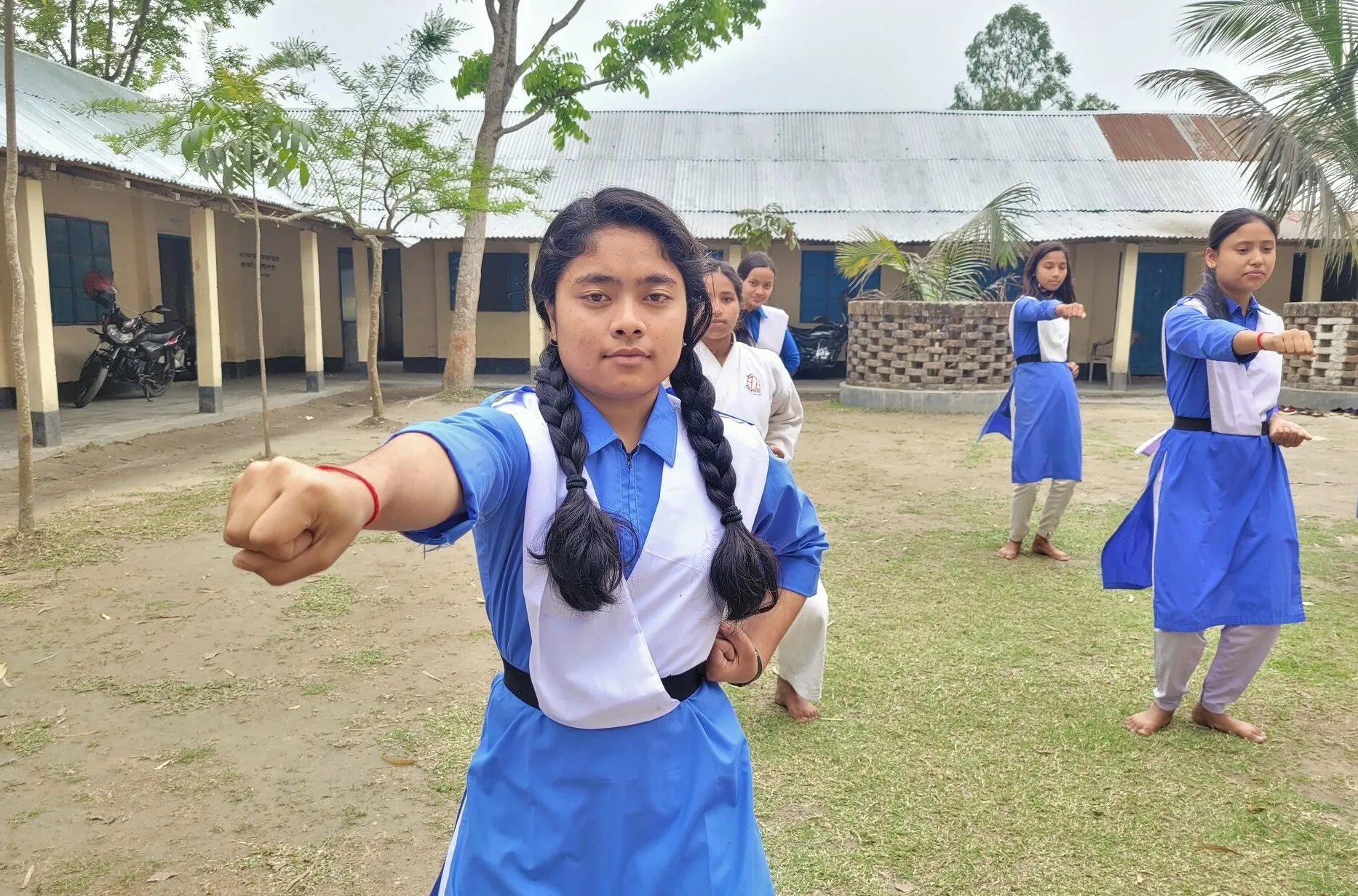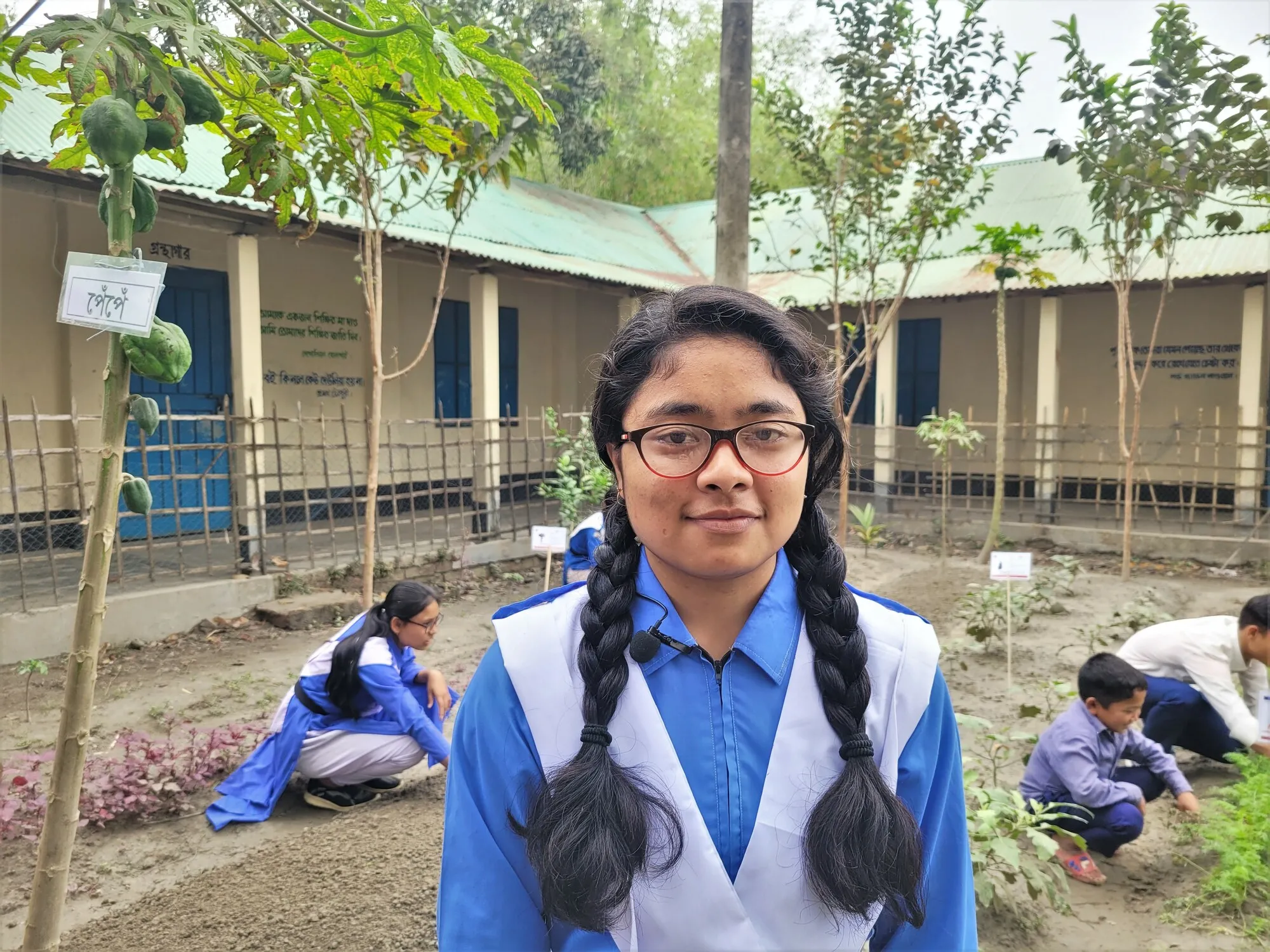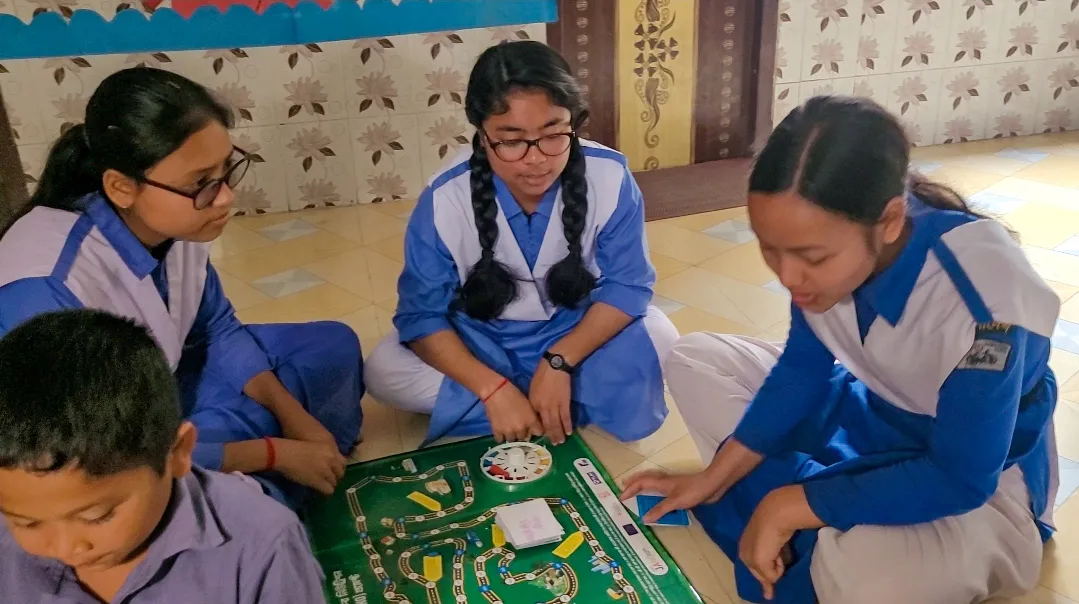The school Unmi attends is one of the 331 partner schools working with CARE’s Joint Action for Nutrition Outcome (JANO) program. One of the key objectives of JANO, which is financed through the European Union and the Austrian Development Agency, is to address the nutritional needs of adolescent girls like Unmi and her peers.
This is especially important in Bangladesh, where 40 million people are food insecure, with 11 million suffering from acute hunger.
CARE’s recent Growth is Not Enough report showed some of the ways gender inequality can make these types of food crises worse, and that focusing on gender can help lessen some of the worst effects of hunger.
That’s one reason why the JANO schools in Bangladesh focus on health, nutrition, and gender equity in line with the country’s Nutrition Action Plan.
JANO works with around 300,000 students to promote positive nutrition practices. Unmi is just one of the girls whose life has already started to change.
“We have classes, we have games, and we also watch videos. I learned about how to calculate my classmates’ BMI (Body Mass Index) and what a balanced diet is.”



